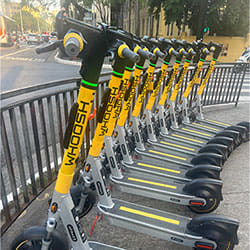The way we work, move, buy food or maintain relationships seems to have undergone a change of course.
Drained by the normalcy of daily gestures and the natural physicality of the meeting, every habit and every action seem to have to wait for a digital beat to stay alive.
The communication rules, needs, time management and even the order of priorities are redesigned by new technological, social and above all mental structures.
In this context a particular area of attention is involved or perhaps overwhelmed more than the others: Education.
And this is how hundreds of schools in the country are organizing to meet this new need and thousands of teachers are taking steps to train (many through webinars) and to transform - willingly or unwillingly - the idea of school they know in something completely different.
Technology today is changing many aspects of our daily life and the way we do training is also changing thanks to the birth of new tools capable of accelerating the learning processes and optimizing the performance of teaching methodologies.
While before this Covid-19 pandemic we could all gather at home with classmates or at the library to do homework and to organise study groups, today the new generations of digital natives use computers or mobile devices to access information faster.
A recent study confirmed that more than 50% of students between 6 and 12 go on the internet to do homework at least once a week and the majority of these students like to be part of a virtual classroom now that the pandemic has imposed these new conditions.
Contrary to what you may think, handy digital data does not distract students from their homework in fact those who study on mobile devices study more per week than those who use only school books, obtaining on average the same school results according to this article published on this national British newspaper.
Nowadays, students may use mobile devices to do researches, practice and play with educational games, collaborate with other students, check school-related alerts and communications and get in contact with their teachers.
I have a friend who is a primary school teacher and she told me that the work of teachers becomes more and more digital because it is linked not only to didactic skills but also to practical skills in the digital field, necessary today in order to be considered teaching professionals.
The relationship between the Internet and school has therefore become the winning key for the future of education and many schools (many more during this pandemic) have started to implement e-learning teaching projects.
She told me that her colleagues and, more generally, British teachers agree that technology improves student achievement and allows them to try first hand at multiple teaching methodologies.
It seems that most teachers also say that technology helps students collaborate and develop teamwork skills which are key to find a job later on in life.
Obviously, these data are a great success for the teaching sector and represent a nice case history that shows that technology is not only a playful tool but also an important channel for improvement and it has come to our help during these difficult times.
The switch to remote learning is likely to become beneficial also at a higher level and in the long term for example for British universities by encouraging them to offer more online courses and therefore attracting more students who could finally study remotely or even from abroad.
Coronavirus created a necessary forcing process to get universities to move faster on how they deliver material digitally and online and, although this process and change will take some time to be perfected I think that in the long run it will be implemented and it will become a standard way to proceed.

Towards an Online Education






























































